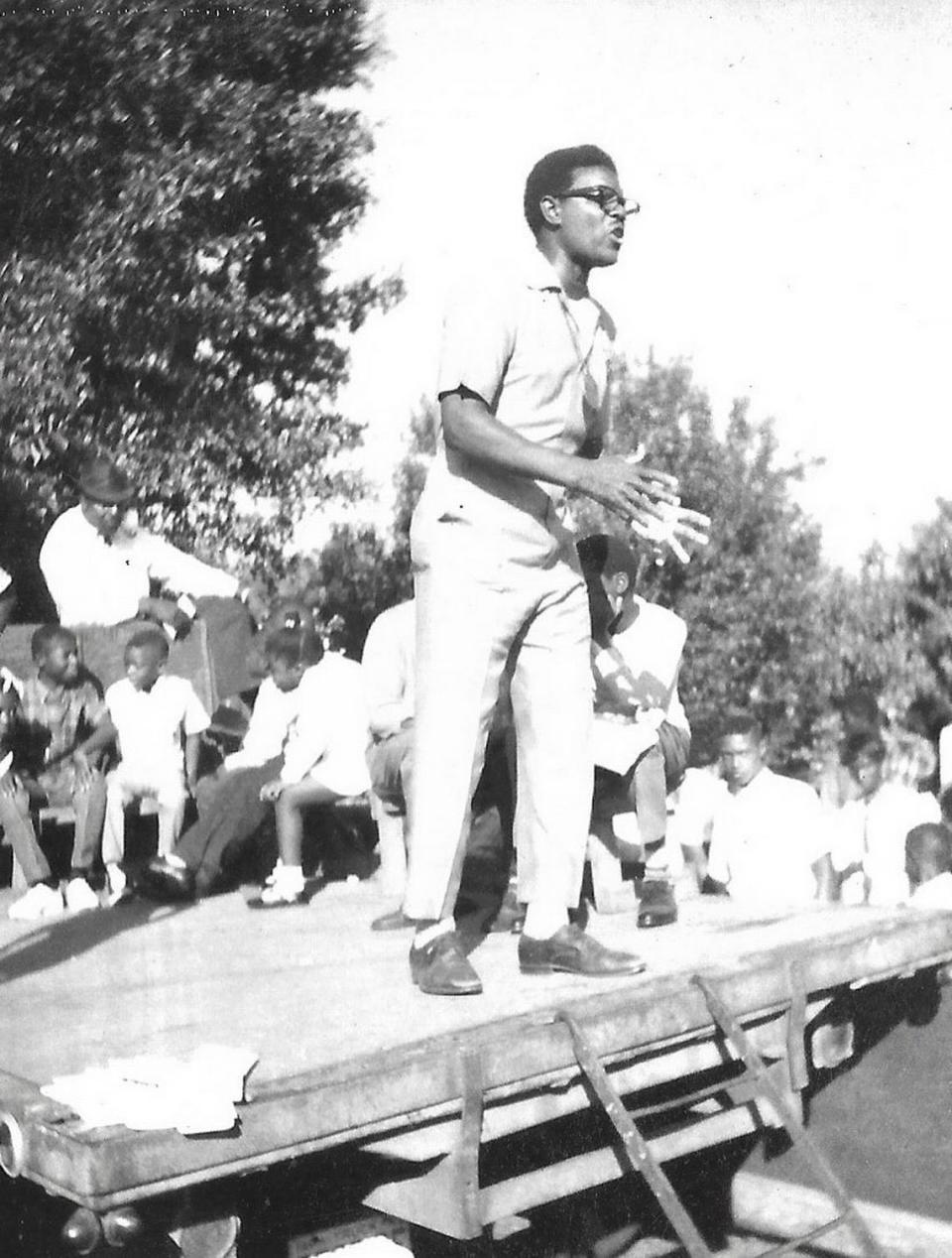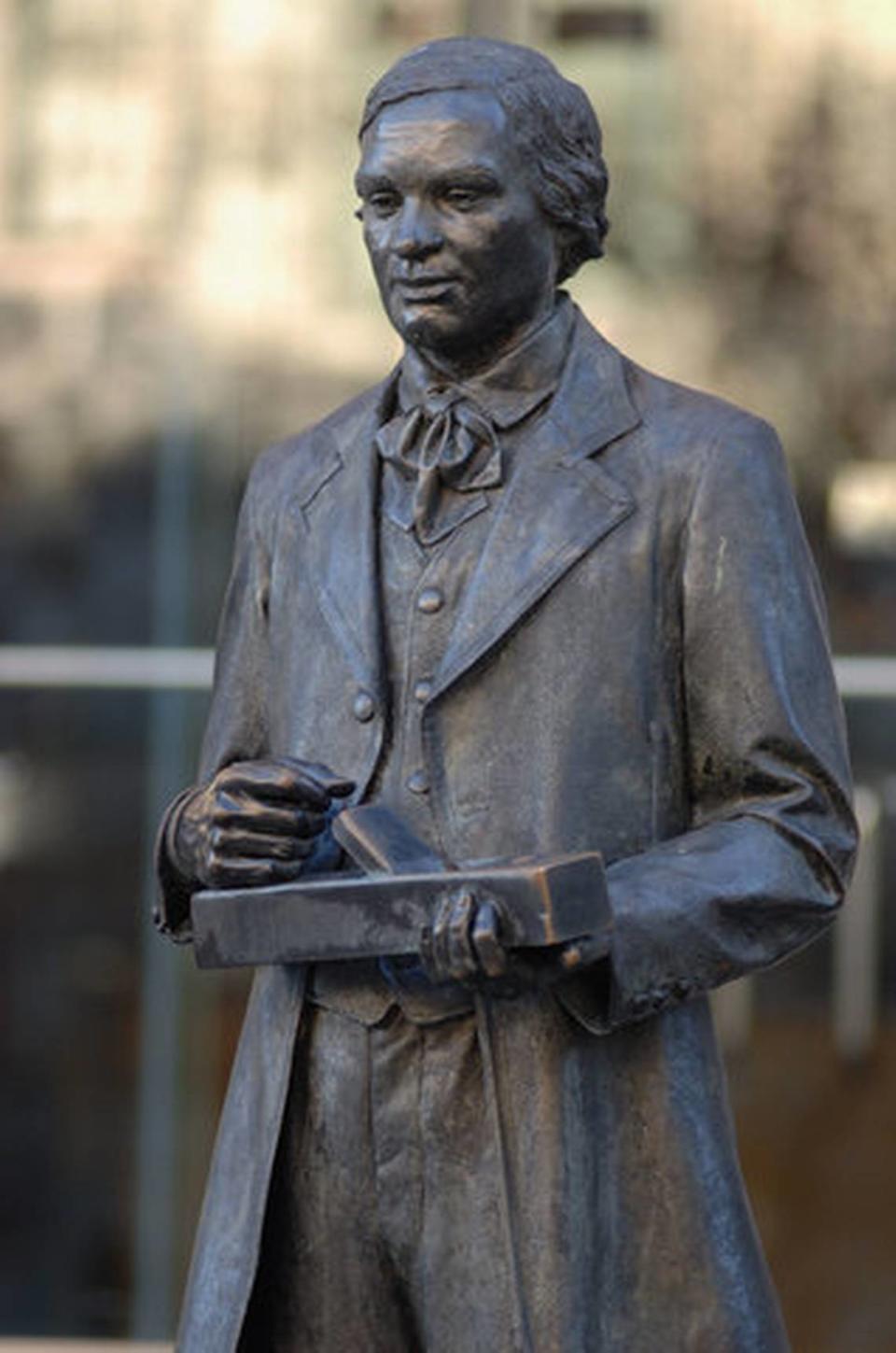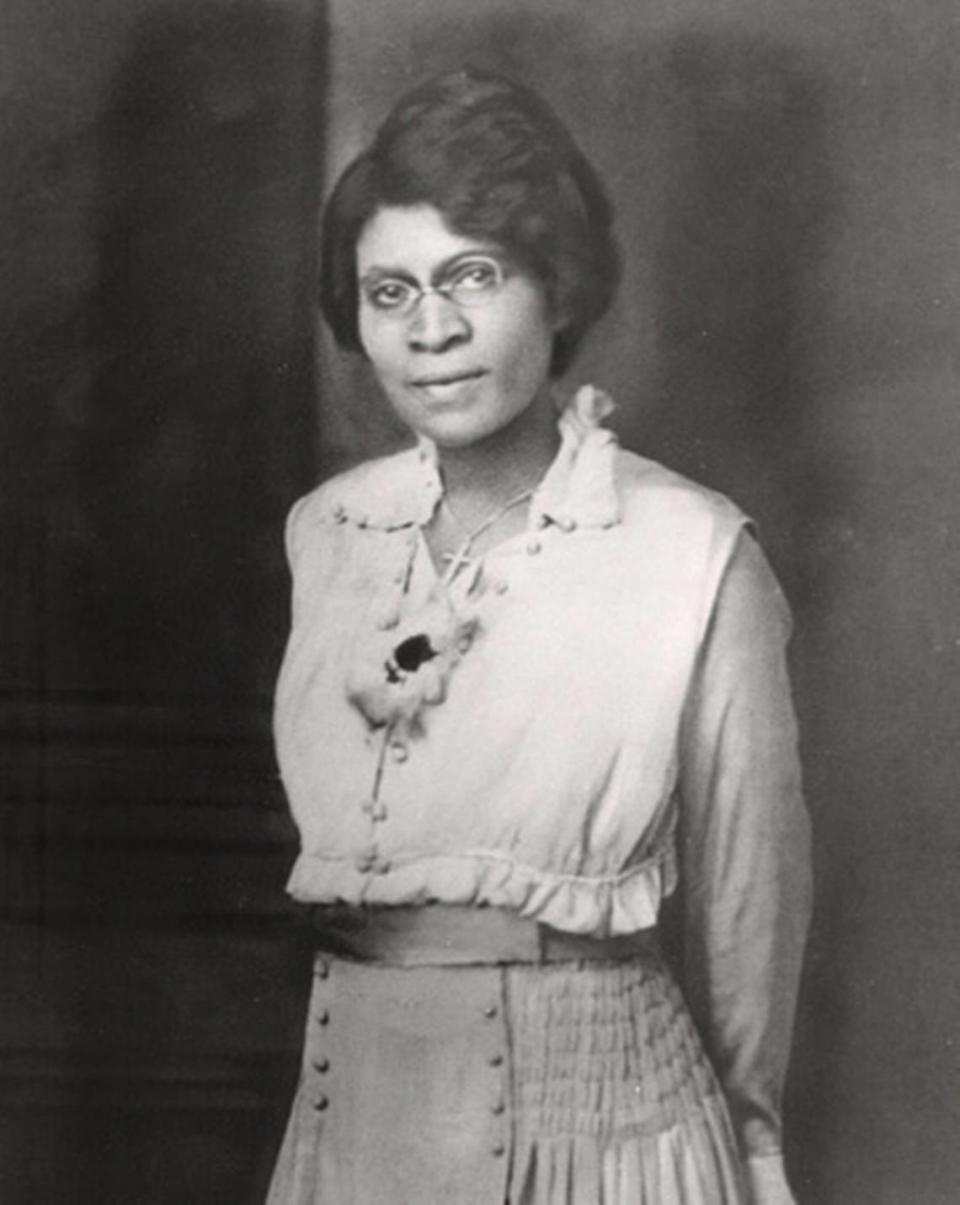NC leaders want to invest more in these three Black history sites
While little progress has been made on proposed Black history monuments at the state Capitol grounds, state-run historic sites are adding buildings that are central to that history outside Raleigh.
The Department of Cultural and Natural Resources is adding the home of civil rights leader Golden Frinks to the historic buildings that tourists can visit in Edenton.
It’s expanding the Charlotte Hawkins Brown Museum in Guilford County, which tells the story of a boarding school for Black students during segregation. And it’s working to buy the Caswell County home of Thomas Day, a 19th century Black furniture maker.
Some of the projects are included in Gov. Roy Cooper’s budget proposal, and some have received grant funding. There’s a need for additional funding in this year’s budget in order to complete the initiatives.
Here’s a closer look at what’s planned:
Golden and Ruth Frinks Freedom House: Visitors to the state-run historic site in Edenton see buildings from the late 1700s and learn about early U.S. Supreme Court Justice James Iredell, but there’s little mention of Chowan County’s role in more recent history.

Civil rights leader Golden Frinks lived much of his life a few blocks away from Edenton’s main attractions, and his modest house will soon be restored as a museum.
Frinks, known as the “Great Agitator,” led civil disobedience actions in Edenton and across the state to protest segregation and Jim Crow laws, and he was a longtime field secretary for the Southern Christian Leadership Conference. He was a close friend of Rev. Martin Luther King Jr., who visited the Edenton house in 1966 and held a rally nearby.
The state received a $241,940 National Park Service grant to fix up the Frinks house, and it’s received papers, furnishings and other belongings from Frinks thanks to his family members.
Exactly what the site will offer when it opens to the public hasn’t been decided yet; State Historic Sites Director Michelle Lanier said a community input process is in the works.
“It’s really important that we listen to community members,” she said. “Many of them were witness to and a part of the history that we’re telling.”
Thomas Day House: Located on the state line outside Danville, Virginia, in the tiny town of Milton, a historic home could be the newest official state historic site. It’s the home and workshop site of Thomas Day, a free Black furniture and cabinet maker who lived there in the 1800s.

The site is partially restored and operated for occasional tours by a volunteer group, the Thomas Day House/Union Tavern Restoration Inc.
For years, the group has been asking the state to take over, with plans in the works to finish the restoration, add a visitor center in an historic bank across the street, and serve a larger number of visitors.
“A lot of people come through Milton but there’s nobody around or … volunteers just have to drop everything and get down to Milton” to open the building, said Joe Graves, a volunteer with the group.
Cooper’s budget includes $800,000 for the project, which a Department of Cultural and Natural Resources spokeswoman says would fund the first phase, creating the visitor center and “stabilizing” Day’s furniture sales office.
And while inclusion in Cooper’s budget isn’t a guarantee of funding in the legislature’s budget, supporters of the project are hopeful because Milton and surrounding Caswell County are in Senate leader Phil Berger’s home district.
Berger has met with the nonprofit’s leaders on several occasions, and the vetoed 2019 budget included $625,000 for the project. Asked about it last week, Berger said he’s not yet sure what will happen in this year’s budget but “anything that is still a viable project” from the 2019 budget will get consideration.
As a full-fledged state historic site, backers of the project hope the Thomas Day House will help educate people about life as a free Black businessman in pre-Civil War North Carolina.
And it could boost tourism for Milton’s historic downtown, where many buildings date to the 1800s. Since the N.C. Museum of History already has an extensive collection of Day’s furniture, DNCR is a logical partner.
Charlotte Hawkins Brown Museum: State officials also want to expand the Charlotte Hawkins Brown Museum, located on the Palmer Memorial Institute campus between Greensboro and Burlington.

Brown founded the school in 1902 as one of the only residential schools of its kind serving Black students during the Jim Crow era. The state historic sites program recently got a federal grant to renovate the Tea House on the campus, which served as a gathering place for students.
It’s been used for storage and off-limits to visitors for years, but Lanier said it can tell the story of “the revolutionary act of African Americans having fun and leisure during the era of segregation.” Students ran the Tea House as a business incubator of sorts.
The state hasn’t yet secured funding for further expansions at the site, but Lanier wants to see some of the unused dormitory buildings renovated. Exactly how those buildings would be used would be determined through a feasibility study.
“The Tea House is for us the tip of the iceberg at that site,” Lanier said. “The larger campus has some enormous possibilities.”
Federal grants for both the Brown Museum and the Frinks House are included in Cooper’s budget plan, as legislative approval for the spending is needed.

